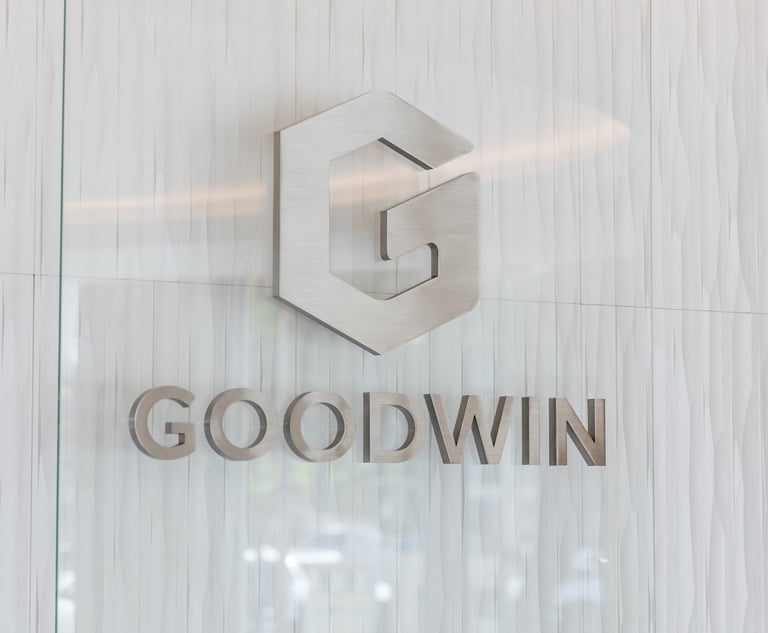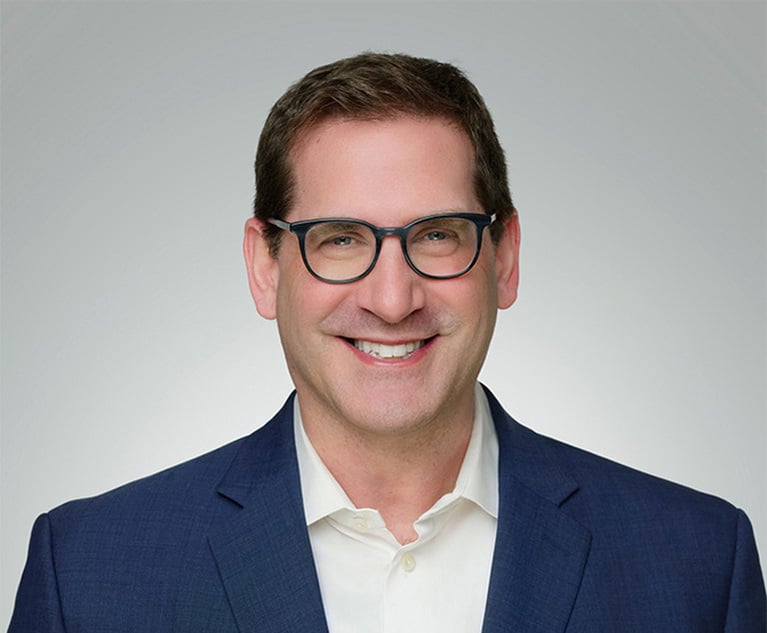The IP Storytellers: Keker, Van Nest & Peters, Finalist for IP Litigation Department of the Year
Keker Van Nest turns complex issues into tales a jury can get behind.
December 21, 2017 at 01:59 PM
4 minute read
 Left to right: Matthias Kamber, Ashok Ramani, Robert Van Nest, Christa Anderson, Brian Ferrall
Left to right: Matthias Kamber, Ashok Ramani, Robert Van Nest, Christa Anderson, Brian Ferrall
In a blockbuster year defined by complex cases, Keker, Van Nest & Peters' intellectual property practice kept its approach surprisingly simple, crafting a litigation strategy that emphasized a strong narrative and a diverse team capable of telling it.
The approach helped Keker to notch major defense wins for Google LLC and Arista Networks Inc. in two of the most closely watched IP trials of the past year, and it was integral to the firm's successful campaign to transform what had been tortured litigation into a $2.8 million verdict for another client.
With the firm's focus on its trial work, Keker in 2017 solidified its status as a clear power in Silicon Valley and a player capable of securing high-stakes wins for its clients.
Department Size and Revenue Lawyers: 37 Department as Percentage of Firm: 42% Percentage of Firm Revenue, 2016: Would not disclose
"If you don't trim your case down and focus it, it's very difficult for jurors to follow it," says name partner Robert Van Nest.
For Keker, that starts by developing a theme for each case and then paying close attention to trial outlines. Once the team settles on an outline, the attorneys make sure that all parts of the trial—from opening and closing arguments to examination of witnesses and experts—fall in line with the theme, Van Nest says.
"They're all working from the same playbook and the same set of themes," partner Brian Ferrall says.
In Cisco Systems v. Arista Networks, Keker portrayed its client Arista, accused of copying more than 500 commands used to configure network switches, as a small yet pioneering upstart, threatening the market share of an aging rival that would rather litigate than innovate.
Arista was facing the possibility of nearly $335 million in damages and disgorgement of profits, an amount that the firm says could have bankrupted the young company. At trial, the Keker team took up the unusual "scènes à faire" defense, telling jurors that Cisco's commands were unoriginal and based on 40-year-old technology, while Arista's routers contained millions of lines of original source code.
"You couldn't just blindly deny" that Arista had used the commands, says Ferrall, who acted as a lead attorney in the case. Instead, he says, "we played to our client's strengths." After a two-week trial, the jury cleared Arista of all copyright and infringement claims.
In Oracle America v. Google, Keker also painted Google as the true innovator in its field, as the firm prevailed in the second round of the seven-year copyright and patent litigation on its client's fair-use defense. Keker's attorneys also focused their arguments in the patent and copyright case on Oracle Corp. co-founder and executive chairman Larry Ellison, saying that Ellison had tried to sue his way into the smartphone business after failing to make a mark on his own.
Facing off against Morrison & Foerster and Boies Schiller Flexner, Keker knocked out what Oracle said were multibillion-dollar claims over the use of the Java programming language in Google's Android platform.
Perhaps the most dramatic example of the firm's approach came in TEK Global SRL v. Sealant Systems International. Keker's attorneys vacated a permanent injunction asserted against TEK on a counterclaim patent.
After a June 2015 appeal to the U.S. Court of Appeals for the Federal Circuit vacated the injunction, the firm portrayed TEK founder Maurizio Marini as a "self-made man," who had used his acumen to develop tire-repair kits that solved the problem of a spare taking up too much storage room in small European cars. In March, the jury awarded TEK nearly all of its $2.9 million in claimed damages against Sealant Systems.
Keker's stack of wins in the intellectual property arena over the past two years demonstrates its ability to bring complicated patent issues to life for a jury.
This content has been archived. It is available through our partners, LexisNexis® and Bloomberg Law.
To view this content, please continue to their sites.
Not a Lexis Subscriber?
Subscribe Now
Not a Bloomberg Law Subscriber?
Subscribe Now
NOT FOR REPRINT
© 2025 ALM Global, LLC, All Rights Reserved. Request academic re-use from www.copyright.com. All other uses, submit a request to [email protected]. For more information visit Asset & Logo Licensing.
You Might Like
View All

'Taking the Best' of Both Firms, Ballard Spahr and Lane Powell Officially Merge
6 minute read
Buchanan Ingersoll Launches in Chicago With 17-Lawyer Team From Locke Lord
4 minute readTrending Stories
- 1Uber Files RICO Suit Against Plaintiff-Side Firms Alleging Fraudulent Injury Claims
- 2The Law Firm Disrupted: Scrutinizing the Elephant More Than the Mouse
- 3Inherent Diminished Value Damages Unavailable to 3rd-Party Claimants, Court Says
- 4Pa. Defense Firm Sued by Client Over Ex-Eagles Player's $43.5M Med Mal Win
- 5Losses Mount at Morris Manning, but Departing Ex-Chair Stays Bullish About His Old Firm's Future
Who Got The Work
J. Brugh Lower of Gibbons has entered an appearance for industrial equipment supplier Devco Corporation in a pending trademark infringement lawsuit. The suit, accusing the defendant of selling knock-off Graco products, was filed Dec. 18 in New Jersey District Court by Rivkin Radler on behalf of Graco Inc. and Graco Minnesota. The case, assigned to U.S. District Judge Zahid N. Quraishi, is 3:24-cv-11294, Graco Inc. et al v. Devco Corporation.
Who Got The Work
Rebecca Maller-Stein and Kent A. Yalowitz of Arnold & Porter Kaye Scholer have entered their appearances for Hanaco Venture Capital and its executives, Lior Prosor and David Frankel, in a pending securities lawsuit. The action, filed on Dec. 24 in New York Southern District Court by Zell, Aron & Co. on behalf of Goldeneye Advisors, accuses the defendants of negligently and fraudulently managing the plaintiff's $1 million investment. The case, assigned to U.S. District Judge Vernon S. Broderick, is 1:24-cv-09918, Goldeneye Advisors, LLC v. Hanaco Venture Capital, Ltd. et al.
Who Got The Work
Attorneys from A&O Shearman has stepped in as defense counsel for Toronto-Dominion Bank and other defendants in a pending securities class action. The suit, filed Dec. 11 in New York Southern District Court by Bleichmar Fonti & Auld, accuses the defendants of concealing the bank's 'pervasive' deficiencies in regards to its compliance with the Bank Secrecy Act and the quality of its anti-money laundering controls. The case, assigned to U.S. District Judge Arun Subramanian, is 1:24-cv-09445, Gonzalez v. The Toronto-Dominion Bank et al.
Who Got The Work
Crown Castle International, a Pennsylvania company providing shared communications infrastructure, has turned to Luke D. Wolf of Gordon Rees Scully Mansukhani to fend off a pending breach-of-contract lawsuit. The court action, filed Nov. 25 in Michigan Eastern District Court by Hooper Hathaway PC on behalf of The Town Residences LLC, accuses Crown Castle of failing to transfer approximately $30,000 in utility payments from T-Mobile in breach of a roof-top lease and assignment agreement. The case, assigned to U.S. District Judge Susan K. Declercq, is 2:24-cv-13131, The Town Residences LLC v. T-Mobile US, Inc. et al.
Who Got The Work
Wilfred P. Coronato and Daniel M. Schwartz of McCarter & English have stepped in as defense counsel to Electrolux Home Products Inc. in a pending product liability lawsuit. The court action, filed Nov. 26 in New York Eastern District Court by Poulos Lopiccolo PC and Nagel Rice LLP on behalf of David Stern, alleges that the defendant's refrigerators’ drawers and shelving repeatedly break and fall apart within months after purchase. The case, assigned to U.S. District Judge Joan M. Azrack, is 2:24-cv-08204, Stern v. Electrolux Home Products, Inc.
Featured Firms
Law Offices of Gary Martin Hays & Associates, P.C.
(470) 294-1674
Law Offices of Mark E. Salomone
(857) 444-6468
Smith & Hassler
(713) 739-1250











